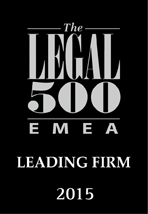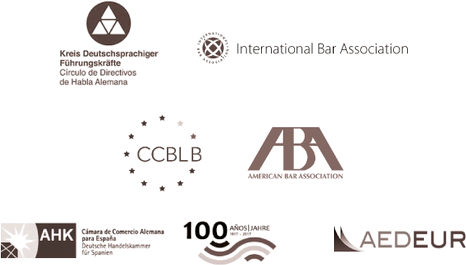
Welcome, Mr Chance: serendipity at dawn raids
04/07/16
Entertaining as ever, three posts on the blog of the Spanish competition authority (Comisión Nacional de los Mercados y la Competencia, CNMC) blog have recently explained what inspections, better known as dawn raids, are all about.
Quite aside from what CNMC officials may take to be “dawn”, their posts describe the (ever so exquisite) manner in which they conduct inspections, but not the substance of the matter. Notably, the posts provide no answer to the key question: what may inspector seize? There is only a polite line that ‘they will try […] to obtain only what may be interesting for the enquiry under way.”
Among the many answers that the Spanish Supreme Court (Tribunal Supremo, TS) has given to this question over the years a recent judgment on fortuitous discoveries stands out:
“If access to the premises and registration are duly authorised by a Court warrant and if registration and seizure of documents are done adequately and are proportionate to the aim of the inspection and the enquiry, materials obtained fortuitously and unrelated to the object of the enquiry may be legitimately used for proceedings with fines against another illegal activity different from the one that determined the Court’s warrant if such materials point at such illegal activity, provided that the procedure following the discovery of such materials is also procedurally adequate.”
In December 2009, the Spanish authority at the time (Comisión Nacional de la Competencia, CNC) inspected the premises of Montesa Honda investigating a possible vertical infringement involving the company and its distributors (information exchanges and coordination of strategies). “Given IT-related technical difficulties and it being impossible to filter on the spot a very large volume of documents, part of it was seized to be analysed later“ at the CNC’s headquarters. There, the officials found an e-mail relating to another, horizontal infringement unrelated to Montesa Honda’s distributors. The CNC used this evidence to start separate proceedings.
Montesa Honda appealed the decision to open proceedings based on this e-mail, first to the CNC itself and then to the Court of Appeals (Audiencia Nacional, AN) alleging an infringement of its fundamental right to the inviolability of private premises. The AN shared the company’s view and annulled the CNC’s decision on 4 December 2012.
Over the past two years, the TS has annulled inspections, entirely or partially, because (i) the inspection order did not clarify the scope of the investigation (the Trasmediterránea case, which led to the annulment of two CNC decisions imposing fines of 48.2 million Euros; and the Unesa case, where the court annulled fines totalling 61 million Euros); (ii) the inspectors did not tell the inspected company that the judge had refused to issue a warrant (Montibello case); or, in a situation similar to the Montesa Honda case, (iii) the CNC had taken documents which were unrelated to the object of the inspection order (Colgate Palmolive case).
At the European level, the EU Court of Justice ruled in Case C-583/13 P Deutsche Bahn that the competition authority could not deliberately look for evidence that is unrelated to the object of the inspection order, regardless of any link with other pending investigations. It is worthwhile to read the Opinion in this Case of one of our favourite Advocates General, Nils Wahl, on what are “fortuitous” discoveries, an Opinion that he delivered after having questioned in detail at the oral hearing the officials in charge of the inspections at issue.
The TS refrains from any assessment of the facts even remotely similar to Advocate General Wahl’s, and from any thoughts on how the CNC may have “fortuitously” found the incriminating e-mail, which had no link whatsoever with the distributors at which the inspection was targeted, going through the data sets with a list of key words. Yet the TS establishes a doctrine on “fortuitous” discoveries while going through large volumes of electronic data seized at a dawn raid. Some may argue that this doctrine is not entirely absurd because inspectors may not randomly image every data set around. Perhaps. The TS, however, does not say what must be understood by reviewing and seizing documents “in an adequate and proportionate manner”.
To be continued…


